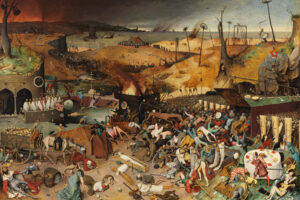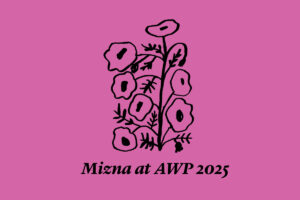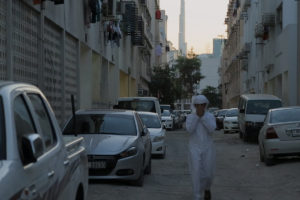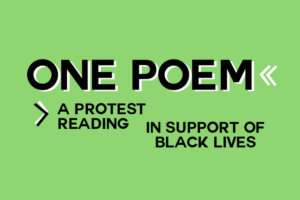
October 23, 2016
Winners of the 2016 Twin Cities Arab Film Fest Awards
Biographical Info
The 11th Twin Cities Arab Film Festival was a weekend of beautiful, challenging, and powerful film. Thank you to our audiences, filmmakers, volunteers, sponsors, and partners.
Mizna’s Arab Film Festival festival has long celebrated films and filmmakers whose work sets them apart. For the second year, in 2016, we convened a brilliant jury of filmmakers, film scholars, and community members working in cultural fields to select the top films in the following three categories: Best Narrative Feature Film, Best Documentary Feature, and Best Short Film. We also present Audience Awards based on the votes of our engaged and thoughtful audiences. These prizes are accompanied by a cash award, made possible by our generous film festival sponsors.
A heartfelt thank you to our esteemed jurors.
- NARRATIVE FEATURE: Hisham Bizri, Ph.D. (Brown University); Mohannad Ghawanmeh (UCLA); Linda Mokdad, Ph.D. (St. Olaf College); Joëlle Vitiello, Ph.D. (Macalester College)
- DOCUMENTARY FEATURE: Mohammed Bamyeh, Ph.D. (University of Pittsburgh); Hasan Dudar (The Cairo Review); Dean Otto (Speed Art Museum)
- SHORT FILM: Umayyah Cable, Ph.D. (Northwestern University); Hongwei Thorn Chen (University of Minnesota); Joseph Farag, Ph.D. (University of Minnesota)
Please find the juror bios below.
JUROR BIOS
Mohammed Bamyeh is a professor of sociology at the University of Pittsburgh, where he specializes in cultural sociology and social thought. He is a former Mizna board member and has helped organize previous Arab Film Fests.
Hisham Bizri is a film director, writer, producer, and scholar born in Beirut, Lebanon. He started working in films in the US and Hungary with filmmakers Stan Brakhage, Raoul Ruiz, and Miklós Jancsó and has directed 25 short films to date. He has taught film at Brown University, MIT, UC Davis, NYU, Boston University, The School of the Museum of Fine Arts (Boston), the University of Minnesota, and in Lebanon, Korea, Japan, Ireland, and Jordan. In 2015, in response to the Syrian refugee crisis, Bizri began partnering with Jordan’s Royal Film Commission to oversee production of documentaries made by Arab filmmakers chronicling life in the Zaatari refugee camp and in 2016 presented film programs to Syrian refugee children in Amman.
Umayyah Cable is a Mellon Postdoctoral Fellow in the Asian American studies program at Northwestern University. She earned a PhD in American Studies & Ethnicity and a certificate in Visual Studies from the University of Southern California. Her research and teaching interests span the fields of ethnic studies, film and media studies, and queer theory, with a particular focus on how marginalized or underrepresented identity-based and cause-based groups leverage film culture in order to foment social, cultural, or political change. She is currently conducting new research for a manuscript based on her dissertation, Cinematic Activism: Film Festivals and the Exhibition of Palestinian Cultural Politics in the United States.
Hongwei Thorn Chen is a doctoral candidate in the department of Cultural Studies and Comparative Literature at the University of Minnesota. His research focuses on the links between non-theatrical cinema, concepts of communication, and logics of governance in the mid-twentieth century. He is currently completing his dissertation, Moving Pictures, Empty Words: Cinema and Educational Governmentality in the Chinese Reconstruction, 1932-1952, which examines the relationship between motion pictures, their exhibition and the structure of Chinese state rhetoric during the period of Guomindang rule. Thorn also volunteers at the Trylon microcinema.
Hasan Dudar is an associate editor at The Cairo Review. He co-produced the short documentary “The Last of Little Syria’ about Toledo, Ohio’’ fading Arab enclave. It was screened at Mizna’s Twin Cities Arab Film Festival in 2015. He currently resides in Egypt.
Joseph R. Farag is Assistant Professor of Arabic Literature and Culture at the University of Minnesota. He was previously a EUME Postdoctoral Fellow in affiliation with the Friedrich Schlegel Graduate School for Literary Studies, Freie Universität Berlin, and Lecturer in Middle Eastern Literary Studies at Queen Mary University of London, where he also earned his PhD. His research covers the intersection of cultural production, history, and politics in the Arab world with particular focus on the Palestinian context. His book, Politics and Palestinian Literature in Exile: Gender, Aesthetics, and Resistance in the Short Story is due for publication in the winter of 2016. Joseph’s current research project looks at the imagination and portrayal of space, place, and time in Palestinian literary and cinematic works. Alongside his scholarly pursuits, Joseph is also a board member of New Arab American Theater Works.
Mohannad Ghawanmeh has produced, acted in, curated for, written about, and lectured on film. Mohannad’s scholarship encompasses Arab cinema; early, silent cinema; nationalism, transnationalism; media studies; French cinema; and more. His dissertation investigates political economy in Egyptian silent cinema. Mohannad is a PhD student in cinema and media studies at the University of California, Los Angeles where he also directs Melnitz Movies.
Linda Mokdad is an Assistant Professor of Film and English and the Director of the Film Studies program at St. Olaf College. She is the co-editor, with Corey Creekmur, of The International Film Musical. She is currently finishing a book on post-9/11 American cinema, which is under contract with Rutgers University Press.
Dean Otto is the founding Film Curator at the Speed Art Museum in Louisville, Kentucky where he launched a new film department and oversaw the opening of a 142-seat state-of-the-art cinema in 2016. He had worked at the Walker Art Center for over 24 years in various positions from Program Manager to Associate Curator, Film/Video.
Joëlle Vitiëllo is Professor of French and Francophone Studies at Macalester College where she teaches courses on North African Literature and Cinema, Voices from the Mediterranean, Literature and Cinema of Immigration, and Representations of Immigration and Border-Crossings in Contemporary Europe. Her research interests include representations of the nation in North African cinema and representations of the Algerian war of liberation from France. In 2008, she co-organized the American Institute of Maghrebi Studies Conference on North African Cinema in Tunis, where she researched Tunisian cinema in 2006. She has presented films from North Africa and participated in outreach programs and round-tables at the Walker Art Center in recent years.












